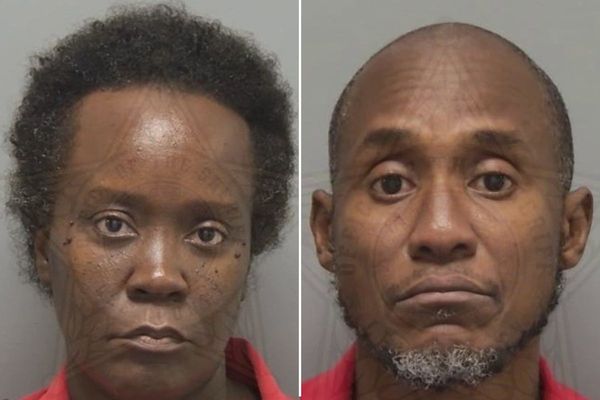Oveta Culp Hobby may be the most important American military leader you've never heard of. She pioneered what became the Women's Army Corps (WAC) during World War II — which played a vital role in ultimate victory.
"Today she seems like a rebel and at the time she shocked some people as being the only woman with so much visibility and power leading a large organization," said Lena Andrews, author of "Valiant Women: The Extraordinary American Servicewomen Who Helped Win World War II."
"She knew her strengths, was aware how to get publicity for her agenda and was effective at getting things done, so exceptional leaders like Gen. Dwight Eisenhower and Gen. George Marshall recognized her potential," Andrews said.
After he became president in 1953, Eisenhower made Hobby (1905-1995) the first head of what is now the Department of Health and Human Services. And he encouraged her to run for president in 1960.
Set Communication Rules Like Oveta Hobby
She was born in 1905 in Killeen, Texas. Her father, Ike Culp, was an attorney. Oveta often stopped by his office on the way home from school. She loved to listen to discussions about his legal and legislative work. He became a state legislator when she was 14. And the young Hobby sometimes skipped school to watch him debate.
She read voraciously. By the age of 10, Hobby consumed the entire Texas Congressional Record. And at 17, she amassed her own library of 750 books.
Hobby later attended law courses at two colleges. She never earned credit. But she was fascinated by the rules governing how organizations ran. At 21, she took over as parliamentarian of the part-time Texas House of Representatives in Austin. She would return several times. Hobby even codified state banking laws as an expert on debate procedures.
She argued in a book titled "Mr. Chairman," published in 1937, that, "almost every phase of life is organized." Hobby knew rules need to govern groups of all kinds and sizes.
"Those who participate in organizational affairs must know certain fundamentals such as how and when to obtain recognition from the chair; which motions are debatable ... what a member's remedy is if his rights are abused; and the principles that which ensure protection of the minority against the majority," she wrote.
Hobby ran unsuccessfully for a seat in the legislature in 1930. And the next year she married former Texas governor William Hobby, president of the Houston Post. She became assistant editor there in 1947. And two years later, rose to executive vice president. In the process, she learned how to earn media coverage. She also found how to network her way to leadership.
Develop The Will To Reach Goals No Matter What
Hobby's work was only briefly paused to give birth to two children. She also recovered from a horse-riding accident that broke her leg and had to recoup from a plane crash.
"She survived with iron nerves and would allow no one to do anything for her," wrote Debra Winegarten in "Oveta Culp Hobby: Colonel, Cabinet Member, Philanthropist." "But as soon as the doctors realized she had been in the plane, they promptly hospitalized her. Few who saw Oveta's calmness that day knew that she was two months pregnant."
The greatest test came in 1941. She traveled frequently to Washington, D.C. to deal with the Federal Communications Commission after the Post bought a radio station. The Army prepared for the looming entry into World War II. Tens of thousands of letters a day poured in asking how women could help.
Hobby met Gen. David Searles who asked if she would lead an initiative in D.C. to organize their support. But Hobby refused because she felt she could not be away from her job and family. Her husband, though, urged her that serving her country came first. She ultimately took the position.
The original goal of the Women's Interest Section of the War Department's Bureau of Public Relations was simple. They just kept the wives, sisters, mothers and other women related to the 1.5 million members of the Army informed about everything from their food to training.
But that changed after Imperial Japan attacked Pearl Harbor on Dec. 7, 1941. Harold Stimson, Secretary of the War Department, asked Hobby what women could do to make up for the shortage of men at home. The list of tasks grew to 239. That included managing the switchboard and repairing weapons. But also nursing and engineering work on the atomic bomb.
Oveta Hobby: Patiently Persist To Become An Innovator
Army Chief of Staff Marshall asked Hobby to be the first director of the Women's Army Auxiliary Corps (WAAC) to oversee this support.
"Racing from city to city, Major Hobby ... proved to be a masterful speaker, persuading large numbers of women to take the unprecedented step of enlisting in a women's army," wrote former U.S. Senator from Texas Kay Bailey Hutchison for Humanitiestexas.org.
"Along the way, she learned quite a bit about the subtle and not so subtle ways in which women were discriminated against," Hutchison said. "When she asked army engineers to draft plans for barracks, they responded that since the WAAC was only an auxiliary, the engineers didn't work for them. The comptroller general claimed the WAAC doctors couldn't be paid because they weren't, strictly speaking, in military service."
Hobby, a 37-year-old female civilian leader of an auxiliary practically working alone, made a big impact anyway. "Hobby had the emotional intelligence, patience, indefatigability, tenacity and charisma to work the informal networks that were available to her to get results from the bureaucracy," Andrews said.
The WAAC proved invaluable in doing many tasks better than men. Gen. Eisenhower originally doubted how much women could help. But he changed his mind. He and Marshall pushed to make them part of the Army. And in July 1943, they created the Women's Army Corps. The WAC lasted until 1978 when women integrated into all units.
Colonel Hobby led the 150,000 women who served during the war. And she rose to be the first woman to receive the Army's Distinguished Service Medal, its highest noncombat award.
Leave A Legacy Like Oveta Hobby
Hobby returned to the Houston Post after the war. She actively supported the United Nations. She also helped Eisenhower become president in 1952, even though he was a Republican and she a Democrat.
Eisenhower appointed her to be chair of the Federal Security Agency. It implemented the Social Security Act among other responsibilities. And she sat in on cabinet meetings. In 1953, he choose her to be the first secretary of the new Department of Health, Education, and Welfare (now Health and Human Services). In that capacity, she approved Jonas Salk's polio vaccine.
"She was the epitome of any great leader who balances the focus on the task at hand and getting results with a commitment to the long-term mission," Andrews said.
Hobby resigned in 1955 to care for her ailing husband. She also resumed her position as president and editor at the Post. In 1960, she became the first known woman that a U.S. incumbent president, Eisenhower, urged to run for president. But she declined.
Hobby passed away in 1995 at age 90. The following year, she was named to the National Women's Hall of Fame. "She is the unsung hero of the women's movement," Winegarten wrote.
Oveta Culp Hobby's Keys
- First director of the Women's Army Corps (WAC) and what is now the Department of Health and Human Services.
- Overcame: Strong resistance to treating women in the U.S. military as equals to men.
- Lesson: Patience and tenacity can overcome major obstacles. Also, "Good manners are essential for success in life."







